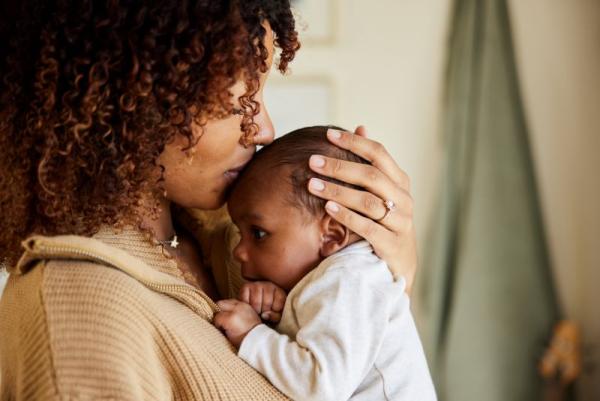Community Engagement Is Key for Healthy and Safe Pregnancies
Maternal mortality (pregnancy-related death) and maternal morbidity (pregnancy-related health conditions) keep rising in the United States. Worse, the risks for pregnancy-related morbidity and mortality are much higher for certain groups of women.
Communities and researchers are now working together to create new hope for a future where the experience of pregnancy and birth can be safer for everyone. Two programs supported by the NIH Community Engagement Alliance (CEAL) — Maternal Health Community Implementation Program (MH-CIP) and Implementing a Maternal health and PRegnancy Outcomes Vision for Everyone (IMPROVE) Initiative’s Community Implementation Program (IMPROVE-CIP) — partner research teams with people from the communities at highest risk of pregnancy-related health conditions and death, with the goal of improving health and preventing death before, during, and after pregnancy.
Part of the challenge in addressing the increase in maternal deaths and poor outcomes involves bringing effective health practices and programs to communities at the highest risk throughout the stages of pregnancy and delivery. This goes beyond just bringing more existing programs to people in need. It is most important that care is delivered in a way that aligns with their lived experiences.
To help achieve this goal, NIH launched MH-CIP in 2021 and IMPROVE-CIP in 2023. These programs aim to improve care before pregnancy; during pregnancy, labor, and delivery; and after delivery for women in communities affected the most by pregnancy-related health conditions and death and who have historically lacked access to the highest quality health care during all stages of pregnancy. These CIPs are co-led by researchers and community members who work together to identify better ways to share evidence-based health practices with women who need them and to increase the number of women who adopt them.
The community programs focus on understanding and addressing factors that can lead to preventable pregnancy-related morbidity or death for the women who are most at risk. This includes a focus on rural and other communities that have higher rates of maternal morbidity and mortality based on where they are located.
Both CIPs address several factors that play a role in maternal health, including the following:
- Hypertension (high blood pressure)
- Mental health
- Substance use
- Lifestyle modifications
- Relationships, social situations and pressures, or other psychosocial factors
- The impact of the places and people in someone’s environment — or social determinants of health
- The impact of government, economic, and social policies that affect people — or structural determinants of health
Both MH-CIP and IMPROVE-CIP feature shared leadership between people from the community and researchers at all phases of the research. In Phase 1, teams map out the focus community’s needs, priorities, and available assets. These findings are used in Phase 2 to build plans for getting critical health care to people who need it and to measure how well they are reached.
This type of research, called community-driven implementation science, gives researchers a better understanding of what barriers may stand in the way of getting better health programs to work for people in the communities they serve. This work, when taken on together by researchers and the communities they serve, offers hope that every woman who experiences the life-changing event of pregnancy and childbirth can do so with less fear of severe outcomes or death.

Last updated: April 11, 2025